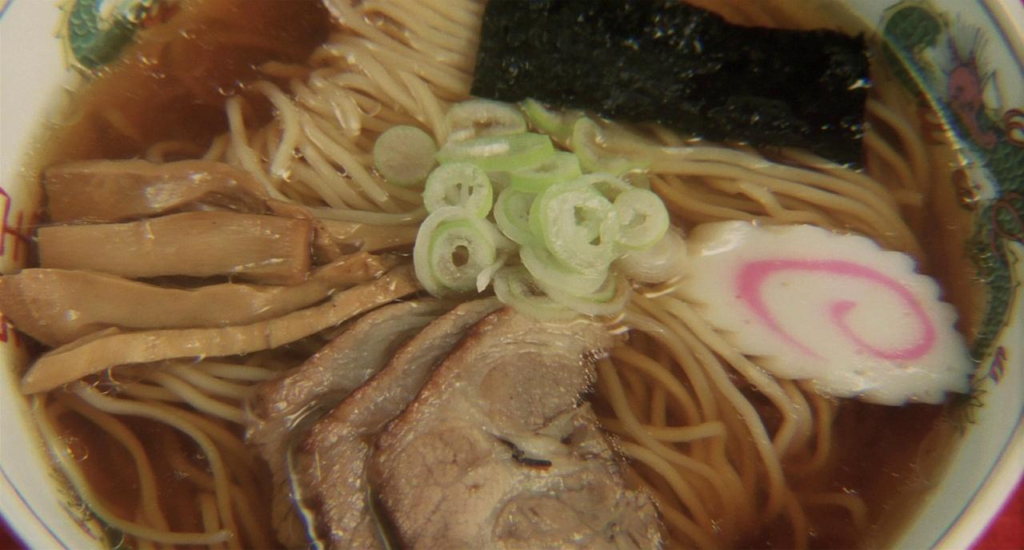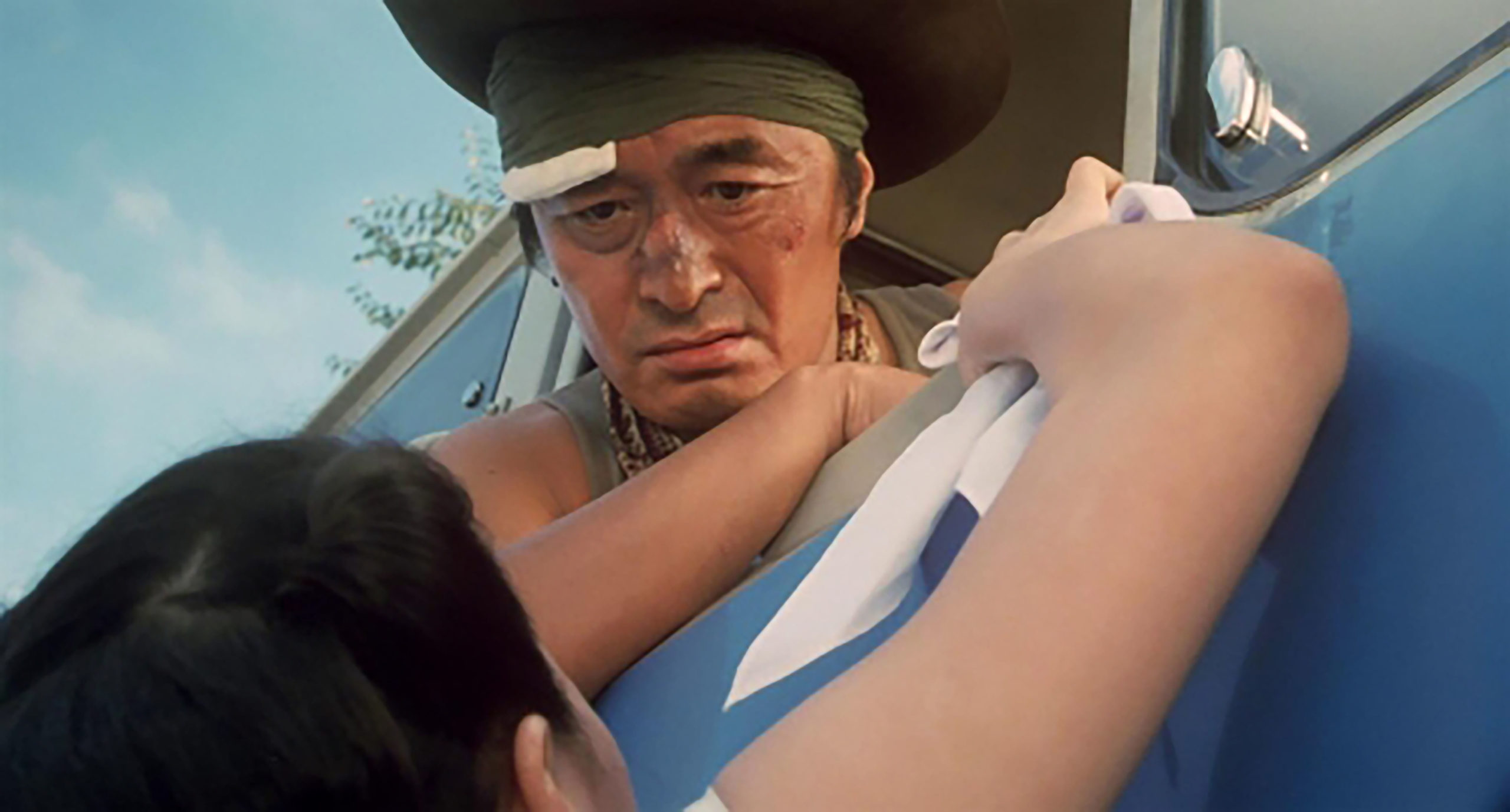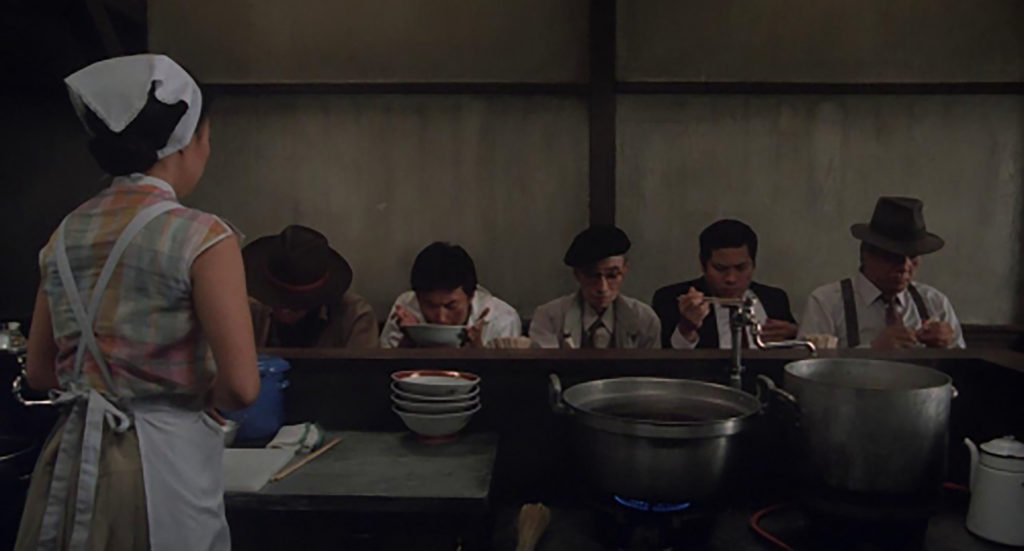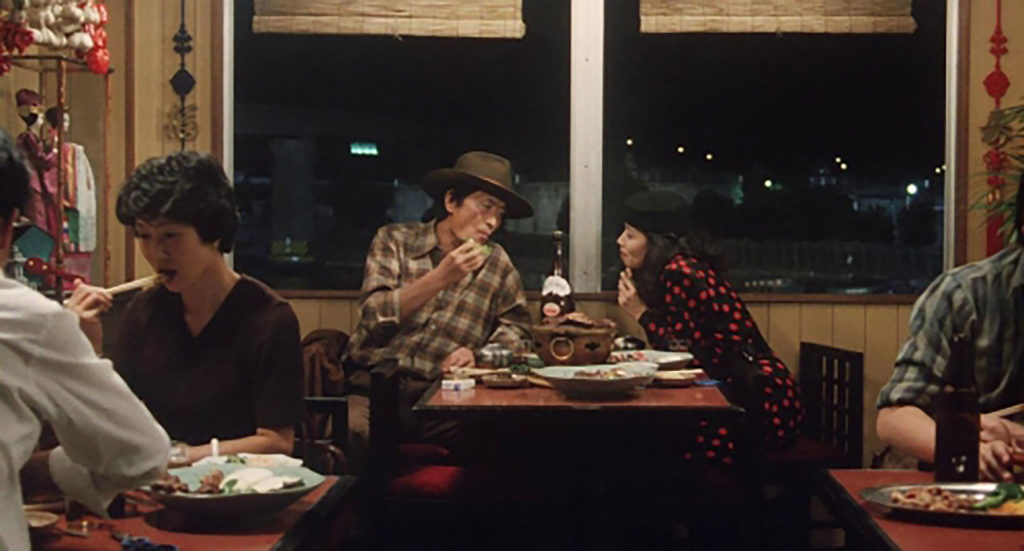| Azra Thakur |

Tampopo plays at the Trylon Cinema from Friday, December 29th, through Sunday, December 31st. Visit trylon.org for tickets and more information.
Four or five years ago, a colleague and I went out for lunch in downtown Saint Paul. We’d started our jobs within a couple of months of each other and were new to working in Lowertown, trying to find vegetarian-friendly restaurants to get a break from bringing our usual lunches from home. “There used to be a Japanese restaurant, Tampopo, but it closed before we started working,” she said. “It’s also the name of a Japanese movie I think you’d like.” I didn’t think anything of it at the time, filing it away mentally to watch later. A few months after this lunch, the pandemic started, and for many months afterwards my colleague and I didn’t go out for lunch in-person again.
Tampopo (1985, directed by Juzo Itami) follows the story of a woman (also named Tampopo, played by Nobuko Miyamoto) who confidently sets out to transform her ramen restaurant with the coaching of a Western-loving truck driver, Goro (Tsutomu Yamazaki), and a small group of colorful mentors she picks up throughout the film. Alongside the main story, where Tampopo learns how to perfect every component within the bowl, there are additional storylines with a memorable group of characters that explore cultural norms in European-style restaurants, the complex relationship between social class and culinary expertise, the interplay between pleasure and food, and the delightful satisfaction of learning a skill over time with the assistance of kind mentors.
At the beginning of the film, Goro and his co-driver are unimpressed by the bowl of ramen they order at Tampopo’s restaurant. They understand what goes into making an excellent bowl, and deftly identify what is missing from Tampopo’s version. As he’s departing, Tampopo requests Goro’s assistance to improve on her recipe. She begins her journey with Goro coaching her along, in scenes (and accompanying musical selection) reminiscent of a sports film: lifting giant boiling pots of water from counter to stove, draining noodles from stovetop to bowl with a quick midair shake-drip dry, taking up running to improve her cardiovascular fitness. As they proceed in their lessons, additional mentors from all walks of life come on board to help with noodles, broth, and even the renovation of the restaurant itself.

How do any of us choose what we devote our energy and commitment to—whether it’s a craft or profession—and determine to excel at it? What compelled Tampopo to ask Goro, a truck driver and ramen enthusiast, to be his “disciple”? How do we decide who is expert and amateur in our society and our lives? Ramen—a commonplace meal in Japan, something easily accessible to everyone in society—is the perfect meal here used to explore how excellence can be achieved by anyone. Early on in the film, when Goro and Tampopo visit ramen restaurants for research, Tampopo tells an arrogant chef: “People who eat ramen are all amateurs.” Ramen isn’t a fine-dining affair. And her mentor isn’t a seasoned chef—it can be someone enthusiastic about the meal and committed to the journey.
My favorite restaurants are ones where you can get something simple—an excellent bowl of vegetarian chili during the dark winter season, a scoop of chocolate ice cream on a summer day, or a hot falafel sandwich with a zingy sauce any time of year. Restaurants where the service is straightforward and the meal simple and nourishing have a firm preference in my heart over fancier places. These are places where you are more likely to remember the conversations and presence of those you’re with, or that allow a quiet moment for yourself after a trying day.

The film alternates between Tampopo’s journey and alternative storylines, and at times feels like we are watching many short films alongside the main storyline. In one such alternative segment, the film further explores the connection between expert and amateur, seniority and youth. During a business lunch at a fancy European-style restaurant, senior leaders all order the exact same basic items while the sole younger staff member proceeds to have a lengthy conversation with the server about the menu, the chef’s background, and requests a vintage wine to go along the meal—the senior leaders are all shocked, stupefied at his brazen order. The senior leaders appear out-of-touch, unable to appreciate the restaurant chef’s expertise or knowledge of the menu, to think outside of the box of the same order. The young staff member is the enthusiast and expert here, to everyone else’s surprise.
Throughout Tampopo we see how a mentor’s encouragement and enthusiasm counts for more than their expertise or genius. Goro is never seen cooking in the kitchen! He advises Tampopo on what to do, and she does all the hard kitchen work herself. Other mentors help out as necessary, in a collective journey in recipe perfection. Near the end of the film, Tampopo and Goro go out for dinner, where she thanks Goro for helping her learn a valuable life lesson:
Everyone has their own ladder. Some do their best to climb to the top while others don’t even realize they have a ladder. You came along and helped me find my own ladder.

Tampopo reminds viewers that success in life is the result of the collective love we receive from our mentors. We find our ladders in life with the assistance of those around us, over meals together. In Tampopo, life is exciting, in constant movement and action, as Tampopo moves confidently towards perfecting her bowl of ramen. Tampopo is indeed, a wonderful recommendation I received from a friend over lunch a long time ago and will revisit with her over lunch again.
Edited by Olga Tchepikova-Treon

Big fan of the film and the St. Paul restaurant, which was “Tanpopo” with an ‘n’, not Tampopo.
https://tanpoporestaurant.com/
Thanks for pointing it out, Jason!